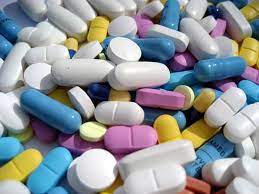
In recent years, MDMA sessie sessions have gained recognition for their remarkable capacity to help individuals overcome a variety of mental health challenges and foster personal growth. In this blog, we will delve into the world of MDMA-assisted psychotherapy, examining its history, therapeutic potential, safety, and the regulatory framework governing its use.
The History of MDMA Therapy: MDMA, also known as “ecstasy” or “Molly,” was originally synthesized in 1912, but it wasn’t until the 1970s that it was explored for its therapeutic potential. Psychologists and psychiatrists began using MDMA in controlled clinical settings to facilitate psychotherapy. Despite its initial use in couples therapy and other therapeutic contexts, it subsequently gained notoriety as a recreational drug.
Today, there is a resurgence of interest in MDMA-assisted psychotherapy as a powerful tool for mental health and personal transformation.
The Therapeutic Potential of MDMA: MDMA therapy sessions have demonstrated significant promise in treating various mental health conditions, including:
- Post-Traumatic Stress Disorder (PTSD): MDMA has shown effectiveness in helping individuals confront and process traumatic memories, often leading to profound healing.
- Anxiety and Depression: MDMA-assisted psychotherapy can alleviate symptoms of anxiety and depression by promoting emotional release and fostering a sense of connection and empathy.
- Emotional Healing: This therapy can aid individuals in addressing unresolved emotional issues, enhancing their overall emotional well-being.
- Personal Growth: MDMA sessions provide a unique opportunity for self-discovery and personal growth, allowing individuals to explore their consciousness and confront deeply rooted issues.
The Safety of MDMA Therapy Sessions: MDMA therapy sessions are conducted in a controlled and supervised environment with trained therapists. Patients are screened carefully, and the dosage and setting are carefully managed to minimize potential risks. Adverse effects are generally mild and transient, making the therapy safe when administered by professionals. However, it is essential to emphasize that recreational use of MDMA can be dangerous and is not a substitute for therapeutic sessions.
The Legal Framework: The legal status of MDMA therapy sessions varies by country and region. Some areas have developed frameworks to regulate the use of MDMA in therapeutic contexts, while others maintain strict prohibitions. It is important to understand the legal regulations in your area before pursuing MDMA therapy.